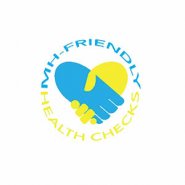
Mental health-friendly health check resources for health and social care professionals
Start date
August 2014End date
OngoingAbout us
This page is dedicated to providing information to health and social care professionals involved in providing health checks to people who might find taking part in them difficult. There are some articles which we have produced around different types of physical health checks, but so far, our work has been mostly around cancer screening and in particular cervical cancer screening. Below you will find this work plus related work by others who have kindly allowed us to share it.
Research type
- Systematic reviews
- Mixed methods.
Mental health-friendly cancer screening
In a series of studies (see publications below), we have identified barriers to cancer screening access and uptake among people diagnosed with a severe mental illness, such as psychosis or bipolar disorder. Within this group, there is a high prevalence of people who have experienced victimisation or trauma such as sexual and/or domestic violence (Khalifeh et al., 2016). Having survived a traumatic experience has been identified in the literature as one of the key barriers to attending cervical cancer screening (Clifton et al., 2016; Lamontagne-Godwin et al., publication in preparation). Research has shown a reduced likelihood in this group of attending cancer screening in comparison with the general population, in the region of 20-60 per cent (Aggarwal et al., 2013; Fujiwara et al., 2017; Inagaki et al., 2018; Woodhead et al., 2016). Cancer mortality is 30 per cent higher in people with severe mental illness than in the general population (Kisely, Crowe, and Lawrence, 2013).
In order to address some of these barriers in relation to cervical cancer screening, we have developed an ‘informed choice leaflet’, which supports women’s decision-making of whether to attend screening. This is designed to help anyone with a cervix who finds cervical cancer screening difficult for any reason. An animated video, depicting some of the key features of the leaflet, was also developed.
In the course of our work, we have identified several other resources which can help address this health inequality. These include physical resources for health professionals and specialist services (such as cervical screening clinics for those who have experienced sexual violence or female genital mutilation/cutting (FGM)). Currently, these resources are only available to, or even known about by, a small number of people local to the where the work was conducted.
We have produced this online resource, hosted by the University of Surrey, which draws together all these existing resources (including the cervical screening leaflet and animated video) and to which new work can be added.
Aims
To help people who typically find it hard to attend cancer screening to make an informed decision as to whether to attend, and, if they want to take up screening, to make it easier for them to attend. This resource is designed to help clinicians and researchers working with people who find it hard to take up screening to:
- Access resources to use with patients/people to be screened
- Share knowledge about best practice in order to develop effective interventions and services
- Share knowledge to identify unmet needs in order to raise awareness and to influence policy changes and local service development
- Share data around their use of this resource so that we can understand and increase its impact.
Funders
Grant funded by Public Health England (GFWLAGR) - 2014-2016
University of West London Vice Chancellor’s PhD Scholarship (Allied health) – 2017-2020
University of Surrey Clinical Innovation Fund – 2019
Team
Chief Investigator

Professor Elizabeth Barley
Professor of Mental Health Sciences and Nursing
Biography
Elizabeth is a Registered Nurse, qualifying in 1990, she practiced women’s health, community and occupational health nursing and completed a BSc (Hons) Psychology in 1994. She was awarded her doctorate in 2004 from the University of London and also qualified as a Health psychologist with practitioner status (HCPC registered). She has since trained, and currently practices, as an Acceptance and Commitment Therapist.
Elizabeth has held numerous research, teaching and leadership roles at St George’s, University of London, King’s College London (IOPPN, FNFNM) and the University of West London (UWL). She was appointed Professor in Health and Wellbeing at UWL in 2018, where she also led the public health team and was an Interim Head of the School of Human and Social Sciences. She was appointed Professor of Mental Health Sciences at the University of Surrey in 2019. Elizabeth has been awarded a number of research grants and has over 50 publications in peer reviewed journals.
Co-investigators

Frederique Lamontagne-Godwin
University of West London
See profile
Claire Henderson
King's College London
See profile
Dr Paul Walters
Dorset Health Care University NHS Foundation Trust
See profile
Professor Caroline Lafarge
University of West London
See profile
Dr Samantha Scholtz
Imperial Weight Centre, St Mary’s Hospital
See profileResources
Cervical screening informed choice leaflet for women with mental illness and/or who have experienced trauma
The leaflet is held under a Creative Commons Licence. We are happy to provide this leaflet free of charge, but would ask you to have regard to the following conditions on its use:
- Do not distribute this to anyone else – if anyone asks for a copy please ask them to obtain it from this webpage.
- If you use the leaflet, or any part of it, we would be grateful if you would please:
- Acknowledge the authorship team
- Send copies of any reports/papers that are produced to Professor Elizabeth Barley (e.barley@surrey.ac.uk)
- Please email any translation of the leaflet which you have commissioned
- Anyone using a translated version of the leaflet we would recommend having it checked through back translation
- Let us have any comments/suggestions that you feel might improve the leaflet so that your experience can be incorporated into subsequent updates.
Download a copy of the leaflet: Support available for your cervical screening (smear test)©.
Feedback
These are typical quotes from people who have commented on the leaflet:
"Having your leaflet during the appointment would give me a voice!", Service user, London community mental health team.
“This leaflet would be helpful to women who don't go”, Service user, London community mental health team.
"It captures quite difficult things but in an easy to understand way", Psychiatrist, West London NHS Trust.
Animated Video
View a 90-second animated video illustrating key parts of the cervical screening leaflet.
The aim is for services, charities, health professionals and members of the general public to share it with women who find it hard to attend cervical screening.
We would be grateful if you could let us know if you intend to use the video by emailing e.barley@surrey.ac.uk.
Publications
Barley, EA, Borschmann, RD, Walters, P, and Tylee, A. (2016) Interventions to encourage uptake of cancer screening for people with severe mental illness. Cochrane Database Syst Rev, 9: p. CD009641. doi: 10.1002/14651858.CD009641.pub3,
Clifton A, Burgess C, Clement S, Ohlsen R, Ramluggun P, Sturt J, Walters P, Barley E. (2016) Influences on uptake of cancer screening in mental health service users: a qualitative study. BMC Health Services Research 16:257.
Howard LM, Barley EA, Rigg A, Davies, E, Lempp, H, Rose D, Thornicroft G. A diagnosis of cancer in people with severe mental illness: practical and ethical issues raised. Lancet Oncology 2010, 11:8; 797- 804.
Lamontagne-Godwin F, Burgess C, Clement S, Gasston-Hales M, Greene C, Manyande A, Taylor D, Walters P, Barley EA. (2018) Interventions to increase access to or uptake of physical health screening in people with severe mental illness: a realist review. BMJ Open BMJ Open 2018;8:e019412.
Lamontagne-Godwin F, Henderson C, Lafarge C, Stock R, Barley E. The effectiveness and design of informed choice tools for people with severe mental illness: a systematic review
Woodhead, C., Cunningham, R., Ashworth, M., Barley, E., Stewart, R. J. & Henderson, M. J. (2016) Cervical and breast cancer screening uptake among women with serious mental illness: A data linkage study. BMC Cancer. 16, 1, 819.
Barley, E.A., Clifton, A., Burgess, C., Clement, S., Ohlsen, R., Ramluggun, P. et al. (2015) Identifying barriers and facilitators to cancer screening uptake by people living with a diagnosis of mental illness to inform policy and practice. London: Dorset Healthcare
Kerrison RS, Jones A, Peng J, Price G, Verne J, Barley EA, Lugton C. Inequalities in cancer screening participation between adults with and without severe mental illness: results from a cross-sectional analysis of primary care data on English Screening Programmes. Br J Cancer. 2023 Jul;129(1):81-93. doi: 10.1038/s41416-023-02249-3. Epub 2023 May 4. PMID: 37137996; PMCID: PMC10307861.
Contact us
If you have accessed this page and are happy for us to contact you in future, please email e.barley@surrey.ac.uk. And if you have a relevant project/resource that you would like us to include on our webpage, please also get in touch.
